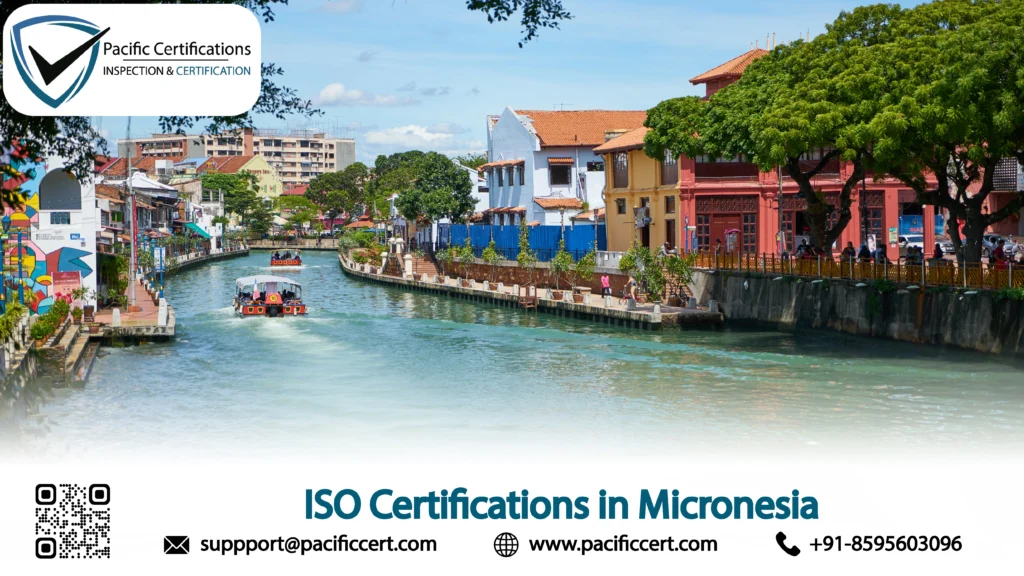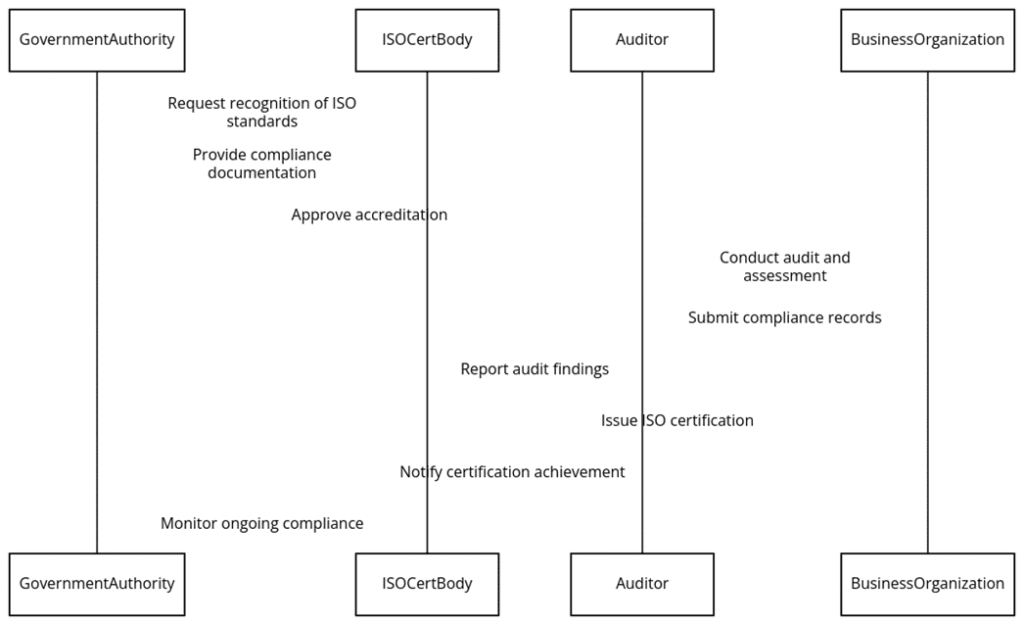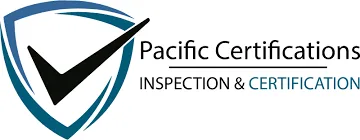
Introduction
The economy of Micronesia revolves primarily around offshore and coastal fisheries, seafood processing and exports, inter-island shipping and logistics, small agrifood and agriculture operations, construction and public works, tourism and hospitality, public services and an expanding layer of telecom and IT support. In all these areas, the ISO certification in Micronesia is gradually becoming the prevailing standard in buyer and seller reviews, government tenders and export contracts of the longest duration. Companies have ISO systems to prove that quality, safety, environmental performance, food safety, data protection and continuity are under control.
For the fishing fleets and seafood plants, the ISO certification for fisheries companies in Micronesia, the ISO certification for seafood processing in Micronesia assures access to lucrative markets, where the buyers inquire in detail about HACCP, traceability and cold-chain control. Similarly for the hotels, resorts and tour operators, the ISO certification for tourism companies in Micronesia, the ISO 9001 certification for hotels in Micronesia and the ISO certification for the hospitality industry in Micronesia maintain the service quality and guest safety during seasons of high and low occupancy. Construction and infrastructure companies have the ISO certification for construction companies in Micronesia, the ISO 9001 quality management in Micronesia, the ISO 14001 environmental management in Micronesia and the ISO 45001 workplace safety certification in Micronesia as their means to manage the risks at the site and pre-qualify for the public and donor-funded projects.
If your organization wants to get ISO certified in Micronesia, share your scope and sites with Pacific Certifications and we will map accreditation coverage, recommended audit days and Stage-1 and Stage-2 audit windows that match your project cycle, fishing or tourism seasons and any integrated ISO 9001, ISO 14001, ISO 45001, ISO 22000, ISO 27001 or ISO 22301 plans while keeping affordable ISO certification in Micronesia in view.
Economic context and industry overview
Micronesia combines rich marine resources with small domestic markets and long sea and air routes. Tuna and other fisheries, seafood processing, inter-island shipping and ports, small-scale agriculture, retail, banking, telecom, hotels, guesthouses and tour operators support livelihoods across the islands. Donor-funded projects and public works shape construction, utilities and infrastructure.
As export markets, cruise operators, aid agencies and regional partners lift their expectations, organizations face closer questions on fishing practices, processing hygiene, cold-chain integrity, vessel and worker safety, environmental impact, food safety, data protection and continuity of public services. In this setting, ISO certification requirements in Micronesia, ISO certification process in Micronesia and ISO certification cost in Micronesia are regular topics for owners, managers and public bodies that want predictable, third-party-checked systems.
Why ISO certifications matter in Micronesia?
Buyers, lenders and public bodies want more than verbal assurances and policy documents. They look for structured systems with traceable records and independent audits. ISO certification benefits for companies in Micronesia include faster movement through vendor onboarding, fewer disputes with buyers and regulators and clearer evidence when incidents require investigation.
Fishing, seafood, construction, logistics, tourism, retail and service organizations rely on ISO 9001 quality management in Micronesia to stabilize processes, control suppliers and manage changes without constant firefighting.
Environmental responsibilities gain structure through ISO 14001 environmental management in Micronesia, which strengthens control of waste, emissions and coastal or site impact, especially where wastewater, fuel, chemicals and noise can affect communities or fishing grounds.
Workplaces also improve safety performance as teams adopt ISO 45001 workplace safety certification in Micronesia to structure hazard identification, controls, training and incident review for vessels, plants, sites and workshops.
In digital and critical-service environments, ISO 27001 information security in Micronesia and ISO 22301 business continuity in Micronesia give banks, telecom providers, government platforms and larger businesses a way to protect data and keep key services running during disruptions. ISO 22000 food safety certification in Micronesia supports HACCP and traceability in fisheries, seafood processing, hotels, restaurants and catering.
Popular ISO standards in Micronesia
| Industry focus | Commonly requested standards | Why they matter |
| Offshore fleets, fisheries and seafood processing | ISO 22000, ISO 9001, ISO 14001, ISO 45001 | Food safety, HACCP, cold-chain, marine safety and environmental control |
| Tourism, hotels, resorts and guesthouses | ISO 9001, ISO 22000, ISO 14001 | Guest experience, food hygiene and environmental impact |
| Construction, public works and utilities | ISO 9001, ISO 14001, ISO 45001 | Project quality, site safety and environmental aspects |
| Agriculture and agrifood | ISO 9001, ISO 22000, ISO 14001 | Product consistency, food safety and land-use impacts |
| Banks, telecom and IT support | ISO 27001, ISO 22301, ISO 9001 | Information security, continuity and service quality |
Certification process in Micronesia
The ISO certification process in Micronesia should start from how work actually runs in vessels and landing sites, processing plants and cold rooms, hotels and kitchens, construction sites and depots, offices, call-centers and data rooms. The aim is to make your system auditable without forcing teams to manage a second paperwork-only version of the business. Below are the steps in how to get ISO certified in Micronesia:
- List products, services, locations, headcount and high-risk processes so the scope is clear and audit time is realistic for single-site and multi-site operations.
- Map processes end-to-end so handoffs, records and responsibilities are visible from raw catch or inputs through processing, storage, transport, service delivery and handover to customers or authorities.
- Set policies and measurable objectives for quality, environment, safety, food safety, information security or continuity that match your contracts, risks and local rules.
- Build controlled procedures, work instructions and forms that match practice on vessels, in plants, hotels, sites, offices and IT environments, rather than copying generic templates.
- Train process owners and internal auditors, keep competence matrices and records for roles that affect quality, safety, food safety, environment, data security or continuity.
- Run internal audits across high-risk processes and key suppliers, record nonconformities, define causes and actions and verify that changes are working.
- Keep permits, licenses, inspection reports, buyer and regulator letters, monitoring and lab results, maintenance and calibration records and risk and opportunity records organized for quick access in audits.
What are the requirements of ISO certifications in Micronesia?
Implementation should mirror real work on fishing vessels and landing sites, in seafood plants and cold rooms, hotels and kitchens, guesthouses and tour operations, construction sites and workshops, farms, warehouses, offices and data rooms. Below are the key ISO certification requirements in Micronesia:

- Scope aligned to products or services, processes and sites, including multi-site programs across islands, fleets, plants, hotels or project sites.
- Controlled documents and records that match practice, with clear ownership, approval, version-control and change-history visible to users and auditors.
- Risk assessment and operational controls for real hazards such as marine and deck-work risks, lifting and equipment hazards, food safety and contamination, cold-chain breaks, chemical and fuel handling, environmental impact, cyber threats, privacy and loss of key services.
- Standard–specific artifacts: HACCP plans and CCP logs for ISO 22000, hazard registers and permit-to-work records for ISO 45001, aspect–impact registers and objectives for ISO 14001, information-asset registers and risk treatment plans for ISO 27001 and continuity strategies and recovery plans for ISO 22301.
- Legal and other-requirements register covering fisheries, food, labor, health and safety, environmental, marine, building, financial and telecom rules that apply to your operations and export or tourism markets.
- Competence matrices and training records for skippers and crew, plant and site supervisors, quality and HSE staff, kitchen teams, IT staff and managers whose work affects quality, safety, food safety, environment or data security.
- Internal audits and management reviews carried out on schedule, with nonconformities, actions and decisions tracked through to closure and records kept for audit-trail purposes.
What are the benefits of ISO certifications in Micronesia?
Certification should be used to move faster through buyer checks and port-of-entry questions, reassure lenders and partners and keep work steady during changes in demand, weather, projects and funding. Below are the key benefits:
- Faster pre-qualification and fewer re-submissions in vendor portals and public procurement for fisheries, seafood processing, construction, utilities, tourism and services.
- Fewer incidents, defects and stoppages on vessels, plants, sites, routes and guest services, which lowers rework, downtime and claims.
- Clearer roles, responsibilities and skill paths for crew, operators, technicians, supervisors, HSE staff, food-safety teams, IT staff and managers.
- Better management of energy use, waste, emissions and resource use at plants, ports, sites, hotels and offices, especially where ISO 14001 and ISO 50001 are included.
- Clearer signals of reliability when buyers compare professional ISO certification services in Micronesia with alternative sourcing or destination options.
Export markets and large seafood buyers are pushing more fishing companies and seafood plants toward ISO 22000 food safety certification in Micronesia and linked quality and environment systems so that cold-chain integrity, hygienic design and traceability can be shown in audits. Tourism operators, hotels and guesthouses see rising interest in ISO certification for tourism companies in Micronesia and ISO 9001 certification for hotels in Micronesia as package-tour partners and booking platforms sharpen their supplier checks. In parallel, public utilities, banks, telecom providers and government platforms are weighing ISO 27001 information security in Micronesia and ISO 22301 business continuity in Micronesia to support service-reliability commitments.
Challenges faced in Micronesia
Demand and expectations are rising, but organizations can face real constraints when working toward ISO. The main challenges often are:
- Budgeting time and funds for certification and system upkeep when teams are already stretched across fishing seasons, tourism peaks, project deadlines and public-service demands.
- Treating ISO as paperwork in some departments, which slows adoption and leaves gaps between procedures and what actually happens on vessels, in plants, kitchens or on sites.
- Shortage of trained internal auditors and process owners who can connect ISO clauses to daily risks in fisheries, seafood processing, tourism, construction, agriculture or IT.
- Gaps in document-control, internal audits, corrective-action discipline and record keeping across islands, fleets, outsourced services and joint-venture structures.
- Confusion between the best ISO certification consultants in Micronesia, who support implementation, and accredited certification bodies, which provide independent audits and issue certificates.
What is the cost of certification in Micronesia?
ISO certification cost in Micronesia is confirmed after scoping and depends on headcount and risk level, the number and spread of sites and vessels, your standards set, whether the program is single-standard or integrated, sampling depth for plants, ports, hotels, sites and offices and the balance between on-site and remote audit work. Affordable ISO certification in Micronesia usually comes from realistic scope, good preparation and sensible use of remote techniques, not from cutting audit time below what rules require.
For small to mid-sized fleets, seafood plants, hotels, guesthouses, construction and agrifood operations, cost is shaped more by employee numbers, process complexity and single-site versus multi-site scope than by revenue alone.
Your proposal from Pacific Certifications will itemize Stage-1, Stage-2 and surveillance days, explain on-site versus remote activities and highlight any efficiencies for multi-site or integrated systems so leadership and finance teams can plan clearly. To discuss ISO certification cost in Micronesia for ISO 9001, ISO 14001, ISO 45001, ISO 22000, ISO 27001 or ISO 22301, contact support@pacificcert.com for a free ISO certification cost estimate and audit outline.
What is the timeline for certification in Micronesia?
Timelines depend on document and record readiness, the speed of closing Stage-1 findings, whether the scope is single-site or multi-site and whether you are seeking one standard or an integrated set. Planning around fishing and tourism seasons, harvest cycles, project milestones, maintenance shutdowns and public-budget windows is important.
A prepared single site or operation, such as one seafood plant, hotel, guesthouse, utility, office or data room, can often move from application to decision within one audit cycle once records and internal audits are in place. Multi-site or integrated programs need more sampling and planning time, especially where fleets, plants, hotels or sites span several islands.
Important standards often requested by buyers in Micronesia
| Standard | Typical drivers in Micronesia |
| ISO 9001 | Supplier approval for fisheries, seafood, construction, utilities, tourism and services |
| ISO 14001 and ISO 45001 | Environmental and safety control for plants, ports, sites, fleets and utilities |
| ISO 22000 | HACCP and food safety for fisheries, seafood processing, hotels, restaurants and catering |
| ISO 27001 and ISO 22301 | Information security and continuity for banks, telecom, government platforms and larger businesses |
These are often viewed as the top ISO standards in Micronesia when buyers, lenders and public bodies design their approval and oversight criteria.
How Pacific Certifications can help?
Pacific Certifications provides independent, third-party ISO audits and certification for organizations across Micronesia that want professional ISO certification services in Micronesia rather than informal checklists. We work with fisheries and seafood processors, ports and logistics operators, hotels, guesthouses and tour companies, construction and public-works contractors, agrifood and agriculture operations, banks, telecom providers, IT and support services and public-sector entities.
As an accredited certification body, we focus on clear scoping, transparent pricing and practical audit feedback that your teams can use. To get ISO certified in Micronesia with ISO 9001, ISO 14001, ISO 45001, ISO 22000, ISO 27001 or ISO 22301, request your ISO audit plan and fee estimate from support@pacificcert.com.
Accredited training programs
Pacific Certifications also supports capacity-building in Micronesia through:
- Lead auditor training: For professionals who will audit ISO 9001, ISO 14001, ISO 45001, ISO 22000, ISO 27001 or ISO 22301 in fisheries, seafood, tourism, construction, agrifood, utilities, banking, telecom and public-service organizations.
- Lead implementer training: For people who build and improve ISO systems inside fleets, plants, hotels, sites, offices and digital environments so they rely less on external consultants.
These programs can run online or on-site, depending on client needs.
FAQs
How long does ISO certification take in Micronesia?
A prepared single-site or single-operation organization can usually complete initial ISO certification in Micronesia within one audit cycle.
Which industries in Micronesia need ISO certification most?
Fisheries and seafood, tourism and hospitality, construction and public works, agrifood, utilities, banking, telecom and public services see the highest demand.
Can ISO audits in Micronesia be partly remote?
Yes, many interviews and document reviews can be done remotely, with focused on-site visits for higher-risk areas.
Which ISO standards suit fisheries and seafood processing in Micronesia?
Most start with ISO 22000 for food safety and HACCP, often combined with ISO 9001 and sometimes ISO 14001 and ISO 45001.
What fits hotels and tourism companies in Micronesia?
ISO 9001 for quality, ISO 22000 for food safety and ISO 14001 where environmental impact is important are common combinations.
Do small businesses in Micronesia also get ISO certified?
Yes, many small fleets, plants, hotels, contractors and service firms use ISO to meet buyer and tender requirements.
Do we need an ISO consultant as well as a certification body?
Consultants can support implementation, while certification bodies such as Pacific Certifications provide independent audits and certificates.
What should we prepare before Stage-1?
Scope, process-maps, risk and opportunity records, policies, objectives, competence records, controlled procedures and at least one internal audit and management review.
Are ISO certificates from Micronesia accepted by global buyers?
Accredited ISO certificates are widely accepted, subject to each buyer’s normal supplier-approval process.
How do we maintain ISO certification in Micronesia each year?
Keep internal audits and management reviews on schedule, close nonconformities, keep records current and complete surveillance and recertification audits when due.
Contact Us
If you need support with ISO certification in Micronesia, contact us at support@pacificcert.com.
Read More at: Blogs by Pacific Certifications






